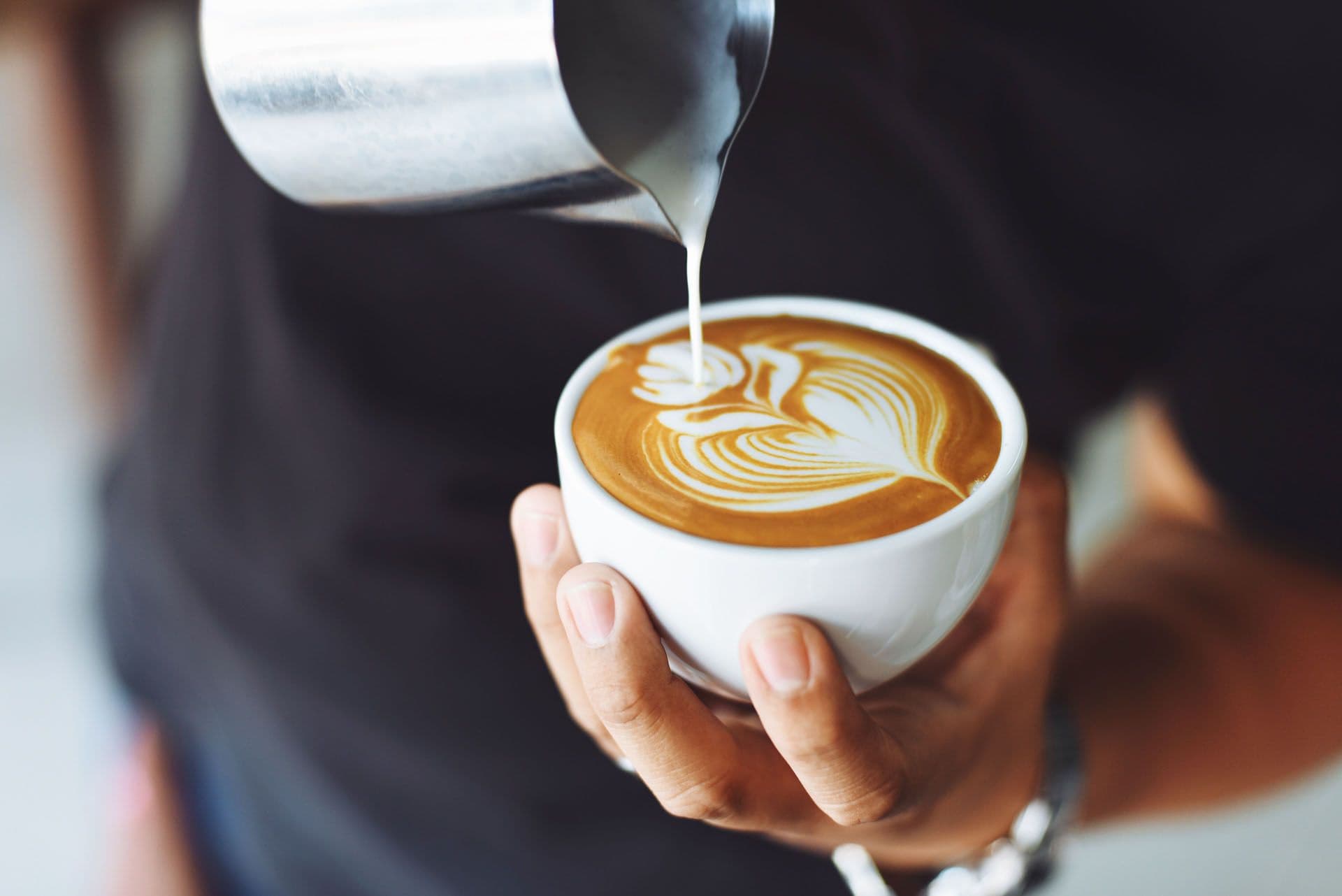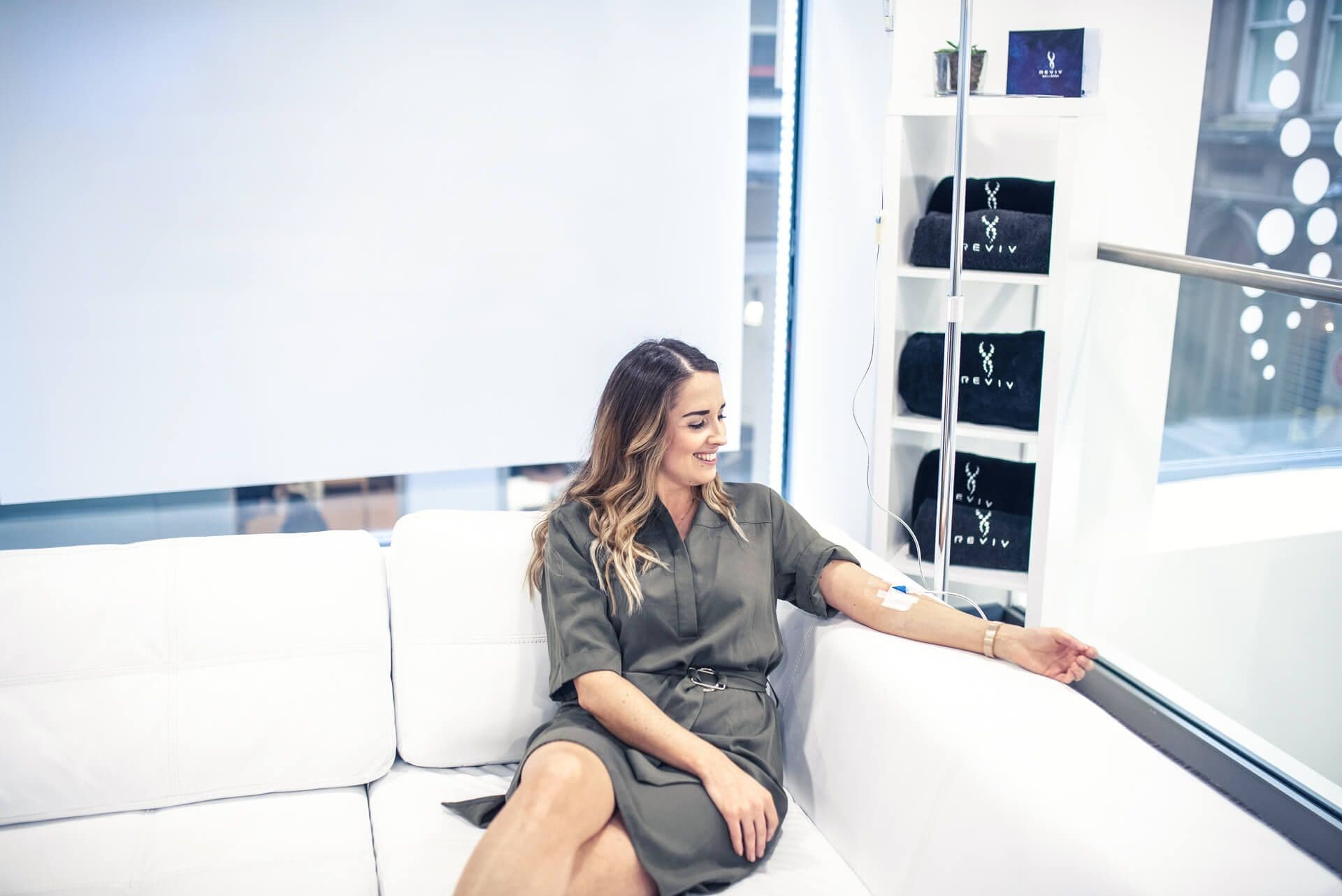
If your locks are lacking oomph or your nails need strengthening you’ve probably done a quick google and come across something called biotin, also known as vitamin H, where H stands for ‘Haar’ or ‘Haut’ - the German words for hair and skin, respectively. A vitamin with as many names as it has benefits, you’ll also hear it called vitamin B7 and coenzyme R, too.
But what exactly is it and how can it help with your own personal wellness journey? Here’s what you need to know.
What is biotin and what are its benefits?
Biotin is a water-soluble B vitamin that’s found naturally in some foods such as egg yolks, milk, pork liver, dairy products - see below for more natural sources - as well as in supplements.
‘Your body needs biotin as it is a co-factor for several enzymes involved in the metabolism of fatty acids, glucose and amino acids. In other words, it helps to turn the food you eat into energy,’ says Dr Ricci.
Another of biotin’s benefits is that it helps the body produce keratin – the protein that makes up your hair, skin and nails.
'Therefore, it is often linked with hair growth and development, as well as promoting the maintenance of healthy nails and skin,’ says REVIV UK's Medical Director, Dr Pascale Ricci.
Does it help your hair grow?
Although it’s often a key ingredient in products (shampoos, supplements) advertising fuller, thicker hair (overnight), there’s no hard evidence that biotin helps hair growth in non-deficient people, ie people whose biotin levels are where they should be.
However, if you have a biotin deficiency there is some better news.
Studies looking into biotin so far have similar findings – that supplementation of biotin helps when specifically utilized in the treatment of known biotin deficiency, and that in these cases hair growth (and strength) and/or brittle nails are improved.
Put simply, biotin can help promote hair growth if being biotin-deficient was the cause but there’s no evidence to suggest biotin supplements will help if something other than low biotin levels are causing thin or fragile hair.

Can biotin help prevent hair loss?
Although there isn’t enough evidence to say that biotin helps with hair growth, there is better evidence to suggest it can help prevent hair loss.
A 2016 study looked into the link between biotin and hair loss and alopecia (a more severe form). It found that if biotin deficiency is a contributing factor or cause then correcting it with supplements can help prevent hair loss or balding.
Dr Ricci says, ‘it’s important to know that biotin is not a miracle cure, but for many people it can be a safe, sensible and supportive measure.’
As hair loss can be caused by a number of health conditions, such as hormonal changes, endocrine disorders and iron or other mineral deficiencies, it’s always worth seeing your doctor to rule anything serious out.
How much biotin do I need?
In terms of how much biotin you need to consume, there’s actually no recommended daily amount (RDA) of this particular vitamin, only something called Adequate Intake (AI) guidelines, which suggests adults are looking at around 30 micrograms per day (35 micrograms if you're breastfeeding).
For most people this should be achievable from a healthy, balanced diet.
‘However, in today’s world some may find it difficult to ensure adequate intake from diet alone,’ says Dr Ricci.
If your doctor or trichologist recommends biotin for hair loss or alopecia, you may be put on a higher dose of biotin. This could be to as much as 3000 (3mg) - 5000 micrograms (5mg) a day.
What can biotin be found in naturally?
Biotin can be found mostly in animal-based foods, although there are some plant-based sources as well.
The best sources of it are:
- Egg yolks
Pork liver
Oat flakes
Wheatgerm
Mushrooms.
Other good sources include dairy products, spinach, yeast, carrots, apples, tomatoes, beef and chicken.

How do I know if I need more biotin?
Signs you might be deficient in biotin include brittle nails, thinning hair, a red scaly rash around the eyes, nose, and mouth and dry eyes. Other symptoms include fatigue, loss of appetite and even depression.
Amongst others, if you suffer with chronic illnesses that impair intestinal absorption, such as IBD, or have had recurrent prolonged courses of antibiotics that reduce your gut bacteria's production of biotin, or take certain medication (such as anticonvulsant therapy or isotretinoin,) follow a strict diet (high in raw egg consumption) you may be at an increased risk of biotin deficiency. This list is not an exhaustive list.
‘Always see your GP with any medical concerns, but if your nails, skin and hair need some TLC, biotin can be worth trying, says Dr Ricci.
Can biotin do any harm?
Biotin is not thought to be toxic due to its water-soluble nature.
However, biotin supplementation may interfere with blood testing for thyroid hormone, reproductive hormones and troponin, producing falsely high or low readings for these markers.
‘If you’re being investigated for conditions associated with thyroid or parathyroid hormones, reproductive health or chest pain, check with your doctor before you start supplementing with biotin. Equally if you already are taking or having biotin supplements, tell your doctor as it can cause false readings when taken concurrently,’ says Dr Ricci.
Biotin at REVIV: what’s on offer?
REVIV already offers intramuscular booster shots, such as vitamin C, B vitamins, CoQ10+ and many more.
Biotin will now join its menu of IMs and will be available as a 0.5% solution for injection: 5mg/1ml, for £49.
This can help with regulation of healthy genes and may also help support:
- Energy levels
- The maintenance of hair, skin and nails
- Your metabolism
Who should have biotin IMs?
Dr Ricci recommends this new addition to REVIV’s IM menu for anyone with poor quality and/or volume of hair, brittle nails and poor skin quality.
To book yours or enquire about whether it’s right for you, call us on 0330 818 7157 (in the UK), or find out more at www.revivme.com.
Sources:
- Related articles


